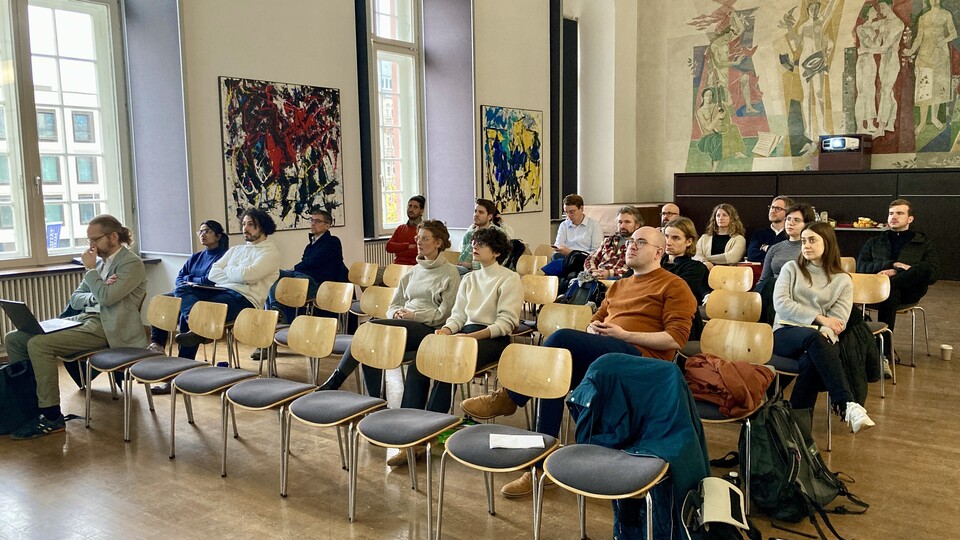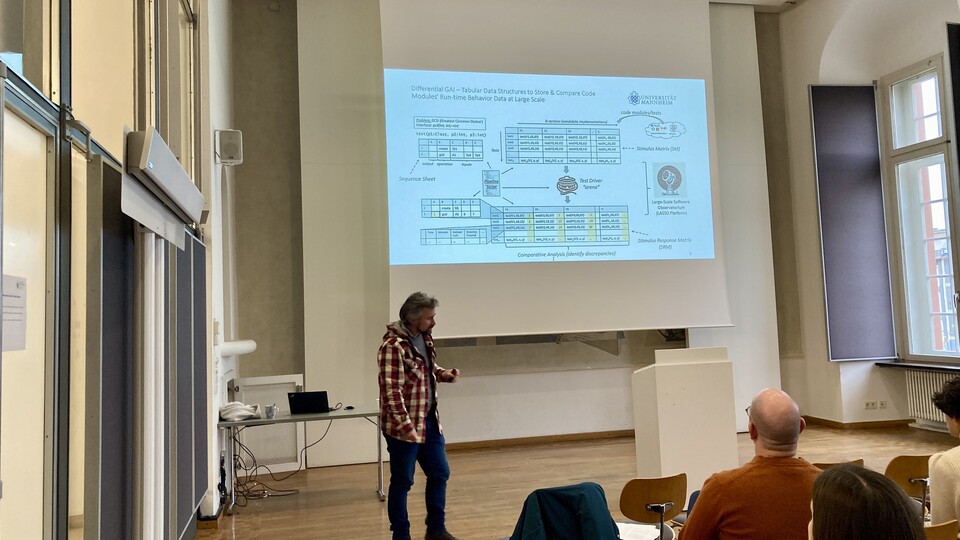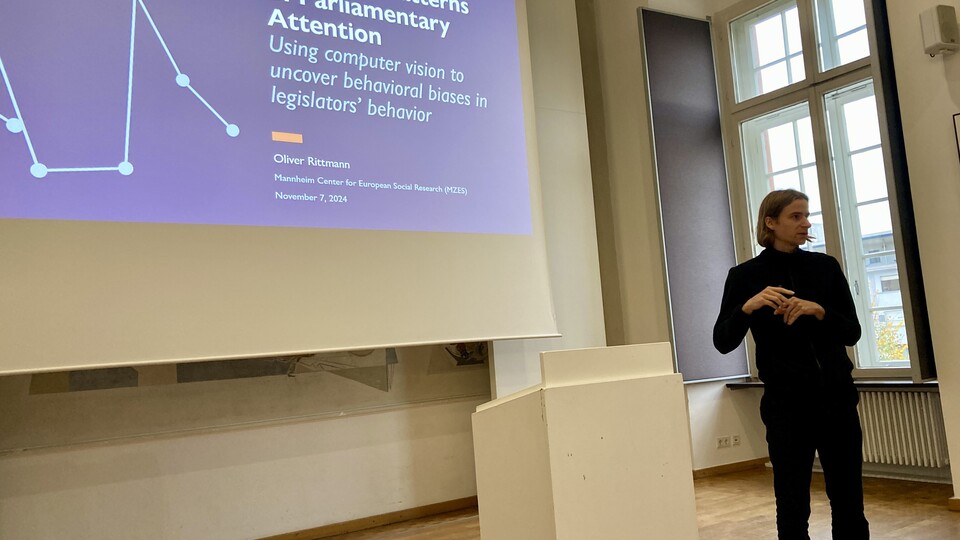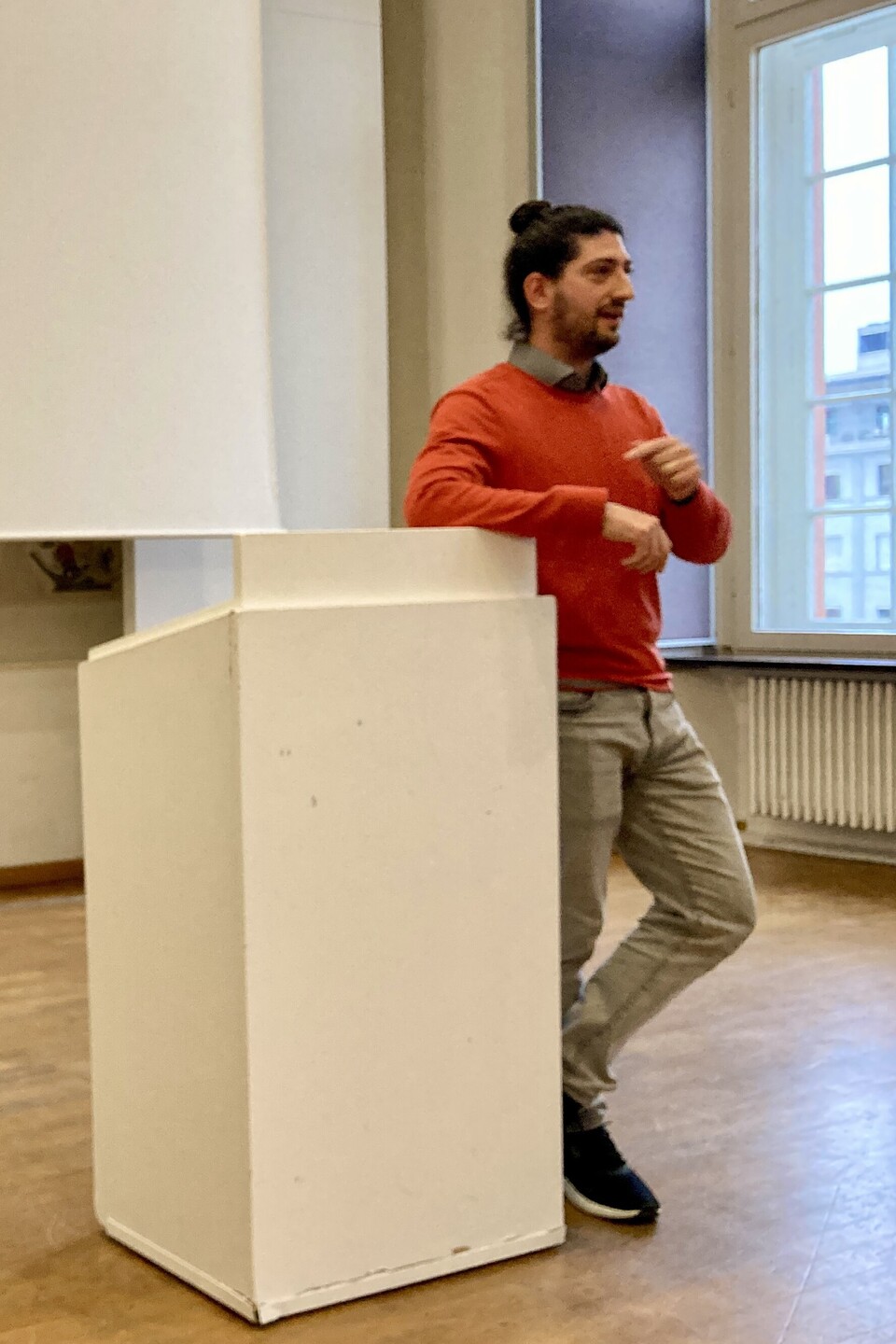Academic Speed Dating in the fall semester 2024: Networking research across disciplines
This time, the event was moderated by Christopher Klamm, a doctoral student in the Data and Web Science Group at the School of Business Informatics. The event kicked off with a keynote speech by Prof. Dr. Margret Keuper, who gave an exciting presentation on “Modern Computer Vision Models – Opportunities and Risks”. In her talk, she explained that even models that generally work well often suffer from low robustness and generalizability. This means that when faced with new or unexpected data, they do not always work as reliably as we would expect them to. The reliability of such models can be improved by methods such as data augmentation (i.e. adding more training data) or regularization (techniques to avoid overfitting). In addition, the architecture of the neural network also plays an important role in how robust a model is. A targeted approach such as Neural Architecture Search (NAS), in which different architectures are automatically optimized for several objectives, can help to find models whose architectures significantly increase robustness.
The keynote speech was followed by three short but exciting presentations by researchers from different departments. Dr. Marcus Kessel from the School of Business Informatics presented his research on Differential Generative AI for Software Engineering. In his research project Gendered Patterns of Parliamentary Attention, Oliver Rittmann from the Mannheim Center for European Social Sciences (MZES) is investigating whether women's speeches in parliamentary debates receive less attention than men's speeches. His research shows that men actually pay less attention to women's speeches, while women pay equal attention to speeches by both genders. In the third short presentation, behavioral economist Prof. Dr. Wladislaw Mill presented his research on how experiences of war influence the religiosity of a society. To examine this using the example of the effects of the Vietnam War on US society, he analyzed photos of gravestones for religious symbols using machine learning.
The event's networking format was also a success: during the coffee break and the subsequent get-together, participants exchanged ideas, made new contacts, and discussed possible collaborations for future projects. As always, the Academic Speed Dating provided a valuable platform for sharing current research, promoting interdisciplinary cooperation, and strengthening the academic community at the University of Mannheim. We are already looking forward to the next event and the continued success of this innovative format.





